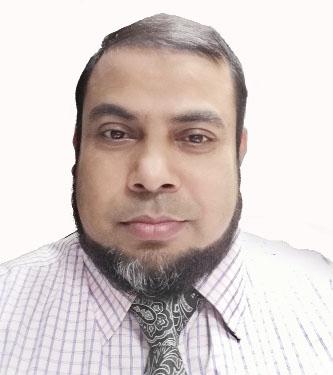
Md. Zillur Rahaman :
Bangladesh’s position in the Corruption Perceptions Index, prepared by the Berlin-based international anti-corruption watchdog, Transparency International (TI), is disappointing. In that report, Bangladesh’s position on the global perception of corruption has improved one step. The organisation has prepared CPI 2021 report with data from 180 countries. Bangladesh is the third lowest among the 31 countries in the Asia-Pacific region and Afghanistan is the only one of the eight most corrupt countries in South Asia.
According to the index, Bhutan is the least corrupt country in South Asia with a score of 68. According to the report, Bangladesh ranks 13th in the list of most corrupt countries and was ranked 12th in 2020. Madagascar and Mozambique are also in 13th position. This time Bangladesh is ranked 147th. However, for the last four consecutive years, Bangladesh’s score has been 26 out of 100. According to TIB, one of the reasons behind corruption in Bangladesh as a whole is the lack of proper implementation of high-level anti-corruption commitments.
However, corruption in the lexical sense is unethical, immoral, misconduct, using dishonest means, making money in dishonest ways, behaving against principles etc. But corruption cannot be defined in any specific way. It is a type of crime that is associated with abuse of power, abuse of opportunity. In general, corruption refers to the neglect of duty, abuse of power, taking kickback or gaining vested interests.
According to economists, sustainable development and corruption seem closely related when a country moves from poor to developing country; there can be widespread corruption in that country. Corruption is a great accompaniment to development. In other words, when a country or a town is in the process of development, then corruption is rampant at various levels. If the government and the regulatory body can take strong action against corruption and fight corruption with unquestionable political commitment, then it is possible to control corruption to a great extent.
However, the much talked about Rooppur pillow scandal, Faridpur Medical College Hospital scandal, Casino scandal, bamboo instead of rod in construction work in different parts of the country, Basic Bank scandal, Janata Bank’s Anantex, Crescent and Thermex Group corruption, Sonali Bank’s Hall-Mark scandal, Bismillah Group’s money laundering has been the subject of much-discussed corruption in recent years. These incidents and scandals are huge wounds for our progress and development and huge threats and challenges to prevent corruption.
According to TIB, the probable causes of corruption in Bangladesh are the lack of commitment against corruption and its implementation; Not identifying the corruption of high level political leaders and bureaucrats; Failure to take legal action against high-level corrupt officials, including the government and political parties; Financial and banking sectors increase in debt default and fraud; Political control over land-river-canal occupation, tender and recruitment is not diminished; Not stopping illegal money transactions; Weak accountability; Lack of effectiveness and independence of the ACC; Impunity and weak rule of law, that is to say, corruption is a punishable crime and the law is equal for all in this crime, the idea is not established and the field of media and civil society is narrowed.
The prerequisite for economic growth and sustainable development is to eradicate the poisonous roots of corruption. There is a black chapter of corruption in every sector of the present day Bangladesh. The life of every citizen is under the influence of the black claw of omnipresent corruption. This catastrophic disease is threatening the country in an unprecedented way. Corruption is rampant in all fields including politics, economy, social policy, industry, trade and business. But it is unfortunate but true that corruption is the main obstacle to the sustainable development of today’s Bangladesh. Corruption is a threat to the development, trade, social equality and democracy of any country. The scale, nature, extent, scope and tactics of this corruption are constantly changing. Ordinary people are being crushed under the pressure of bribery and corruption of government institutions.
Corruption is the main shortcomings to sustainable development and it is a threat to trade and commerce, social equality and democracy. Overcoming these obstacles to development requires the concerted efforts of people from all walks of life. We have to build a social movement against this. The poisonous side of corruption must be uprooted from all levels.
(Zillur Rahaman is a banker).

